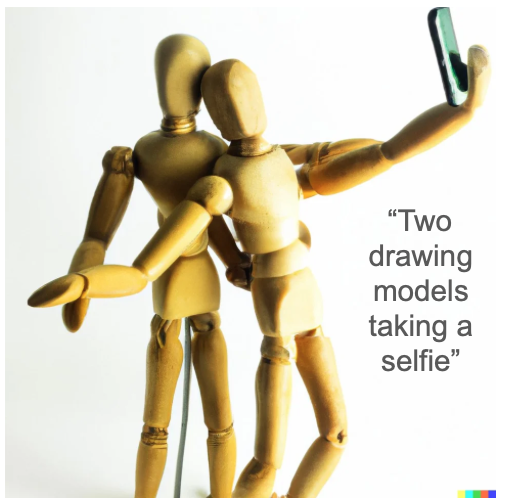Measure D: Could AI help?
In the podcast Making Sense #280 The Future of Artificial Intelligence, Sam Harris interviews Eric Schmidt, previously the CEO and Chairman of Google. Eric is also a co-author of a newly released book: The Age of AI, and our Human Future. They discuss many positive and negative issues surrounding AI. What caught my attention is how AI is already widening the scope of human knowledge. One example is the discovery of Halicin: a powerful antibiotic that can kill many species of antibiotic-resisted bacteria. The AI probed hundreds of millions of compounds to produce Halicin: a broad spectrum antibiotic.
In another development, AI made a breakthrough in protein-folding, what many thought was insurmountable. Forbes called it “the most important achievement in AI — ever”.
DALL-E
One of the most facinating AI applications is DALL-E: an AI system that can create art from submitted text. For example, if you were to ask for an image of cats in a barbershop quartet, what would the AI create? Mark Adams has put together a collection of art generated by DALL-E. Mark is the co-founder of Cruz Hacks and the first executive director of Santa Cruz Works. Check these out:
Make Me Smarter
AI can help us become more intelligent, or the opposite: dumbdown. Some 68% of US adults get their news from social media. We know that Facebook uses AI to amp the feed, to promote engagement for advertisers. The AI has a “bias” for outrage. Outrage creates more engagement. Hence the rise of fake news.
Alternatively, AI can also help us distinguish fact from misinformed opinions. To use an issue all too familiar to our community, could AI help us sort out fact from fiction with Measure D. For example, AI could definitively determine facts such as costs and time to build a rail. Will it cost millions or billions? Will it take a few years, or a few decades? Does a single trail versus a trail + rail kill more or fewer trees? More importantly, is there a smarter “greener” way to solve Hwy 1 traffic problems? If only AI were available now to help us. But then there is the question of whether our community would trust and be guided by fact vs opinion. A catch 22.
We would like to know how you will vote on Measure D. Let us know at SCWorks Members VOTE.
While AI will not help our community with the upcoming mid-elections, there is hope. We know that as humans evolve, each successive generation gets smarter and smarter. AI will enhance and accelerate our knowledge, and make each new generation that much smarter.
AI for Knuckleheads
To learn more about how AI is being used for everything from gaming to customer service, join us on May 4 for AI for Knuckleheads at the Kuumbwa Jazz Center.
About Eric Schmidt
Eric Schmidt is an accomplished technologist, entrepreneur and philanthropist. He served as Google’s Chief Executive Officer and Chairman from 2001 to 2011, where he pioneered Google’s transformation from a Silicon Valley startup to a global leader in technology. Eric oversaw the company’s technical and business strategies alongside founders Sergey Brin and Larry Page. Under his leadership, Google dramatically scaled its infrastructure and diversified its product offerings while maintaining a strong culture of innovation.








